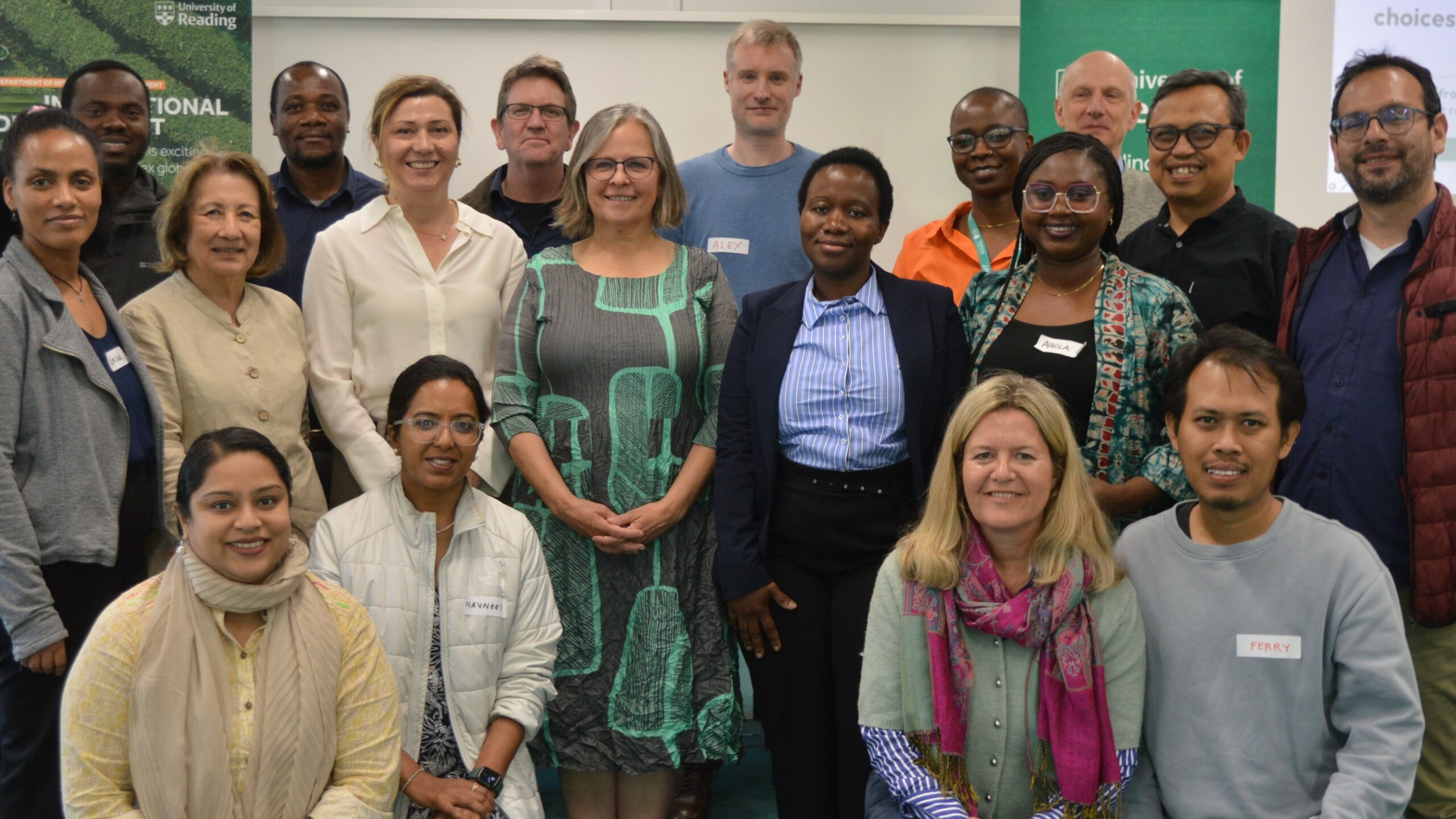The School of Agriculture, Policy and Development hosted a high-impact international conference that drew PhD researchers from around the world under the theme ‘Advancing International Development through Innovative Research.’ Organised by the Department of International Development, the event highlighted fresh perspectives on some of the world’s most urgent challenges, including digital technology, gender inequality, food insecurity, and climate resilience.
In her opening speech, Professor Henny Osbahr of International Development and head of the Global Development Research Division, applauded the originality and critical thinking showcased by PhD students. She said the themes speak to some of the most urgent and complex challenges in global development.

“First, we’ll be he aring research that engages with the intersections between gender, digital transformation, and food security. These topics are deeply interconnected. Gender remains a critical axis of inequality that shapes access to technology, labour markets, and resources. As digital tools transform how development interventions are designed and delivered—from mobile money to remote agricultural extension, it’s essential to examine who benefits and who is left behind. And food security, a foundational concern in development, is being redefined in a world of climate shocks, shifting diets, and global supply chains. Understanding how gendered power dynamics and digital innovations interact within food systems is more vital than ever. Our students tackle these complexities with nuance, originality, and real-world relevance.”
“Second, we’ll explore work on value chains, climate services, and partnerships. These themes offer insight into how development operates at multiple levels, from the microeconomic realities of smallholder farmers and local enterprises to the institutional arrangements that enable or constrain collective action. Climate services such as early warning systems, seasonal forecasts, or climate-smart planning are becoming crucial tools in responding to environmental change. But their success depends on effective partnerships: between researchers and practitioners, governments and civil society, and across borders and disciplines. Understanding how value is created and shared within chains, and how data and relationships shape resilience, is a key part of this ongoing inquiry, Osbahr explained.
One of the PhD researchers in her first year of studies, Jackline Tino, whose research is titled: ‘How can digital technology be made inclusive for girls and young women to enhance entrepreneurship and innovations’, said the forum boosted her confidence in her PhD journey.

“I felt confident and affirmed in the area I chose to explore. Articulating the thoughts and motivations shaping my research was an absolute joy. The feedback I received included insightful suggestions, such as additional variables to consider, which will strengthen the framing and reach of my research objectives. I believe in the Feynman Technique: ‘To master something, you must create the obligation to teach it’. This presentation felt like an opportunity to reflect, articulate, and learn through sharing. It also allowed me to weave in lessons from my professional journey that are now shaping my academic research,” Tino explained.
The keynote speaker, Dr Irene Guijt, the former head of Evidence and Strategic Learning at Oxfam Great Britain, shared with the PhD researchers her experiences in bringing about transformative change. She discussed the importance of linking research to action and the need to start looking at the scale theory. She emphasized that research must be built around honesty and hope.

“The keynote speaker left us with two powerful, reflective questions: ‘Whose future am I invested in? “How can I use evidence to inspire people and create lasting change? These questions gave me a moment of pause. While I am investing in my future as a researcher, I am also deeply invested in the future of the young people my research serves. I’m passionate about impact stories, and I believe young people are some of our most compelling storytellers. Through the case studies in my research, I hope to inspire them through their voices and experiences, and to show them that innovations are part of meaningful change, Tino concluded.
The conference closed with a dynamic panel discussion titled “The PhD Life in Three Acts: The Beginning, Middle, and End,” featuring insights from experienced academics, including Dr Amanda Caine, Professor Peter Doward, and Dr Gilbert Miki and Dr Punam Behl. The panelists advised researchers to stay passionate, communicate boldly, and think beyond the thesis.
“Your influence should go beyond the research paper,” Dr Miki urged. “Engage with people, build networks, and position yourself to make a global impact.”

In his closing remarks, Associate Professor Alex Arnall of Environment and Development in the Department of International Development, thanked the speakers, PhD researchers, and participants for their invaluable contributions. He was impressed by the diverse themes presented, which were geographically well represented by Malawi, Zambia, Tanzania, Nigeria, Kenya, Indonesia, South Africa, Uganda, and Colombia.
“I am happy that many lessons and insights were shared, which will equip us as we continue research that links to action, as the keynote speaker emphasized,” Arnall concluded.


